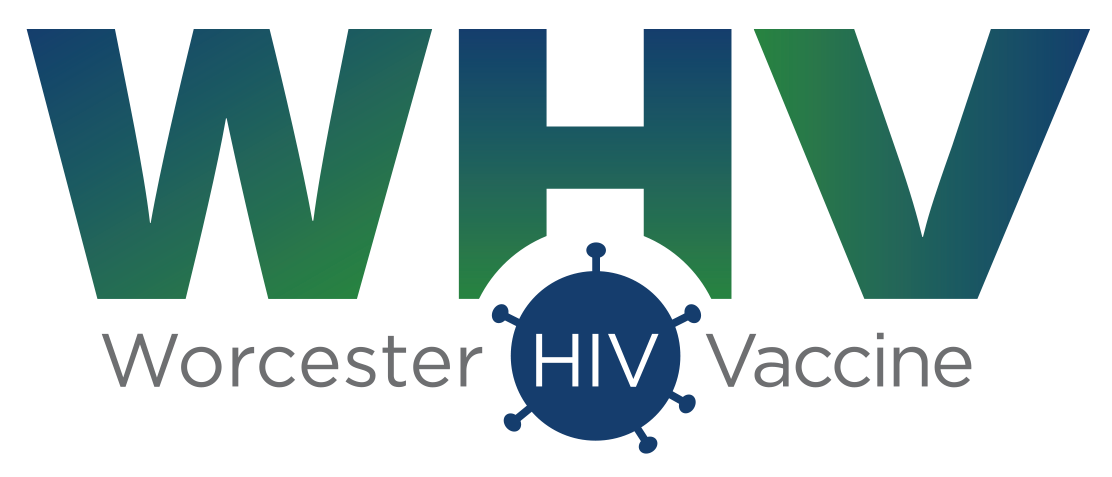Collaboration with UMMS Allows for Faster, More Effective Path to Advancing Clinical Trials
[DECEMBER 1, 2019] ̶ This World AIDS Day researchers at Worcester HIV Vaccine (WHV), a biotechnology organization next to the University of Massachusetts Medical School (UMMS) announced plans to take their innovative HIV vaccine candidate through to Phase IIa clinical testing. If proven immunogenic, this would be the first and only vaccine candidate that targets all four major HIV subtypes to advance to safety and efficacy trials in humans.
“A safe and effective HIV vaccine has the potential to shape the future course of this epidemic,” said Shan Lu, M.D., Ph.D., professor of Medicine at UMMS and the creator of WHV’s HIV vaccine. “Despite significant progress on the potential of new biomedical strategies in the global HIV response, we are still seeing more than 37 million people living with HIV around the world, and another 1.7 million newly infected each year. We know an effective vaccine to prevent HIV would be one of the biggest advances in global health.”
WHV’s investigational HIV vaccine candidate, PDPHV is in formative stages of development. It is comprised of five DNA plasmids and four gp120 recombinant proteins and is being tested in healthy adult volunteers in a Phase I clinical trial (HVTN 124) run by the National Institute of Allergy and Infectious Diseases’ (NIAID) HIV Vaccine Trials Network (HVTN). Immunogenicity results from the HVTN 124 trial are expected in early 2020 having just concluded all vaccinations in October.
“We are making excellent progress in preparing for the Phase IIa clinical trial of PDPHV – something that could happen as early as mid-2020, should the Phase I results show positive immunogenicity,” said Yegor Voronin, Ph.D., chief operating officer of WHV. “We’ve done the hard work of advancing GMP manufacturing, optimizing the clinical trial design, and clarifying the regulatory pathway, all in an effort to move Phase IIa study as quickly as possible should we see a positive signal.”
Earlier this year, WHV researchers showed that they can improve the manufacturing of the DNA component of PDPHV and confirmed that its proteins continue to demonstrate an excellent stability profile, which will allow a faster and more effective path to Phase II clinical trials.
Shan Lu and his group at UMMS have been working for more than two decades to advance a preventive HIV vaccine. The PDPHV vaccine combines HIV DNA, which is used to prime the immune system to receive a boost of HIV protein, which signals the body to produce antibodies against HIV. This prime-boost approach activates both antibody and cell-mediated immune responses, and induces functional antibodies with better qualities and longevity than using either type of vaccine alone as shown by an earlier version of this vaccine in a single-site clinical trial conducted at UMMS.
Much of WHV’s progress in early research and development has been the result of collaborations with UMMS. In the last decade, Dr. Lu’s group at UMass Medical School received more than $30 million to oversee the development and manufacturing of PDPHV, which allowed WHV to license PDPHV from UMMS in early 2018 for its further development. WHV has worked with Waisman Biomanufacturing (WB), a third party contracted manufacturing organization, to use DH5a E. coli strain with WB’s proprietary technology, to manufacture DNA plasmids with purer quality and higher yields than previous cell lines. WHV is also establishing broad collaboration with academic and industry partners including the UMMS Mass Spectrometry Facility, led by Scott Shaffer, Ph.D., to develop new analytical assays to use during vaccine manufacturing. This world AIDS Day as the global HIV community reflects upon its accomplishments, and takes stock of the challenges that lie ahead, WHV renews its commitment to rapidly and efficiently advancing a novel HIV vaccine through clinical development. There’s no doubt that a safe and effective HIV vaccine is an essential component to ending the HIV epidemic once and for all.

